I wrote this article in Japanese and translated it into English using ChatGPT. I also used ChatGPT to create the English article title. I did my best to correct any translation mistakes, but please let me know if you find any errors. By the way, I did not use ChatGPT when writing the Japanese article. The entire article was written from scratch by me, Saikawa Goto.
Introduction
Movies and books covered in this article

Three takeaways from this article
- It’s important to have the “courage to break the law” while keeping in mind the premise of “upholding the law.”
- One woman who tried to stop the Iraq War, which was starting for the wrong reasons.
- When you can’t take the right action without breaking the law, which one should you choose: the law or justice?
Self-introduction article


Published Kindle books(Free on Kindle Unlimited)
“The genius Einstein: An easy-to-understand book about interesting science advances that is not too simple based on his life and discoveries: Theory of Relativity, Cosmology and Quantum Theory”
“Why is “lack of imagination” called “communication skills”?: Japanese-specific”negative” communication”
The quotes used in this article are based on notes taken at the movie theater from movies in Japanese and are not direct quotes from the foreign language original movies, even if they exist.
It’s Better to be Praised for Doing Something Wrong Than to be Criticized for Doing Something Right
“We Should Obey the Law,” But “the Law is Not Always Right”

Whenever I learn about someone’s personal struggles through non-fiction or documentary films, I find myself thinking more and more about the following things:

It’s better to be praised for doing something wrong than to be criticized for doing something right.
Of course, as a basic premise, I believe that “laws should be followed.” Whether or not we have chosen to do so, we live in a “rule of law” country, and in order to establish society amidst various values, I think that some form of coercive force saying “follow this rule” is necessary.

And when I say “rules” here, it is nothing more than properly formulated and managed “laws”. Therefore, my basic idea is that we must live by the “law” that we must abide by.
However, it shouldn’t be that we always have to follow the law. For various reasons, there may be shortcomings in the “law”. Sometimes it may not fit with the changing times and societal changes, and there may be situations where one has to follow the laws of a dictatorship. Although the possibility of the “law” having shortcomings exists in various ways, here I will focus on the “dishonesty committed by law makers.”

When listening to politicians and bureaucrats speak, I sometimes feel uneasy about their claims such as “if we view it in a framework like this, we are right.”
I always feel that the way they make those claims is unfair. This is because it is a statement by the person who is creating the “framework like this”. It’s like creating their own exam questions and then grading themselves. If they can create their own exam questions, they can get a perfect score no matter what.
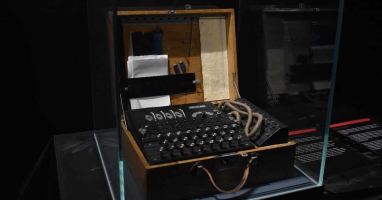
Of course, I understand it’s not easy to do as I say. It’s not supposed to be an easy system for a single politician to be able to commit fraud just based on their personal ulterior motive. However, I feel that it is common practice for governments and administrations to set the overall direction and steer in a direction that is different from what the people want.
If such a “law” exists with such a background, there’s no need to follow it.

And I believe that “We should do what we think is right even if it means breaking ‘laws that we think are clearly wrong’ rather than being accused by seriously obeying the law.”
There are likely many achievements and accomplishments in the world that could not have been accomplished otherwise without a doubt.

What Should We Do When We Can’t Take the Rright Action Without Breaking the Law?
This movie depicts a woman who struggles to choose between “breaking the law” or “upholding justice.”

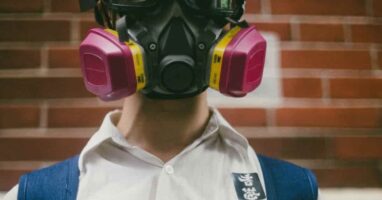
Moreover, it’s a very ultimate choice. This is because the protagonist finds herself in a situation where her actions may be able to prevent a war.
The female protagonist declares in a scene, “There are times when war is necessary,” which would mean she is not necessarily against the act of war itself. This may also be inferred from the job she has chosen (national intelligence agency).

And that is precisely why it is easy to understand what she is struggling with. She isn’t saying “war is bad,” but rather she’s judging that “it’s bad because it’s the wrong war.”
For better or worse, she was in a position to estimate that “the war that is about to begin is legally wrong.” What action can we take when we realize we are in such a position? This is a very difficult problem.
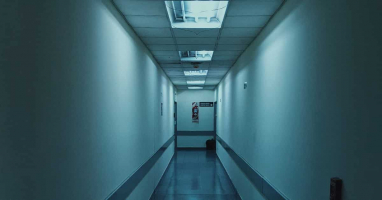
The protagonist is a “spy” who belongs to the Government Communications Headquarters (GCHQ), a British intelligence agency. When she became a staff member, she signed the “Official Secrets Act,” promising not to disclose any information she learned on the job to outsiders, no matter what it is.
In other words, it is illegal for her to leak information learned through work.

Meanwhile, she learns from a communication addressed to staff that an outrageous plan is in progress. Even if it is meant to win against a country designated as an “enemy,” it is inhumane and cannot be tolerated.
This story is based on a true story, so I feel it would not be really a spoiler to write the conclusion. As expected from the flow of the story so far, she leaks confidential information to the outside.
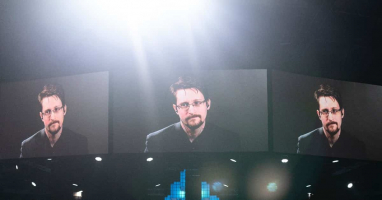
Your actions are admirable. Many of your colleagues feel the same way.
She is suspected of being the source of the leak, and is put in a difficult position, but on the other hand, her actions are understood by colleagues who shared her feelings.
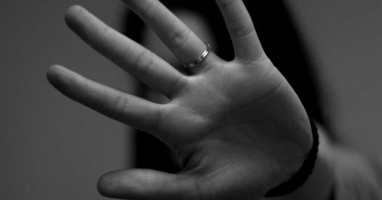
In this film, there are also these words of praise from what must have been a high-ranking U.S. government official, which would not have reached the protagonist directly.
I’ve been thinking for years. Restrictions on the press should only be done when the country is in danger. If it’s just the government that’s in trouble, there’s no problem.
It’s not a direct compliment to her, but it’s more than enough as an indirect praise.

She herself maintains the belief that her actions were right. When she was arrested and questioned by detectives and told “you are in a position to serve the government,” she refuted it like this:
No, I am not serving the government, I am serving the people. I am not working to help the government lie to the people.

That’s exactly right. And I found it wonderful that even in a situation where she or someone close to her was in a pretty tight spot, she could say so clearly such straightforward words.
When asked by the media, “Would you do the same thing again if necessary?” she responded firmly:
I have no regrets, and I would do the same thing again.


Even more impressive was the following scene. A colleague apologizes to the protagonist for what she could do nothing. She consoles her colleague, saying, “You are not wrong,” but then goes on to say.
But, you didn’t do the right thing either.

This would be the very situation “Not knowing what to say”. She has the right to say so, and if one is said so, they have no choice but to shut up.
Breaking the law requires courage. Even if I have the conviction in myself that my actions are objectively and absolutely right, and the confidence that my belief will not change even after taking action, I will still hesitate. Moreover, if it relates to war, it’s even more so.

She still took the right action according to her beliefs.
Reading stories like this makes me feel like I have to step forward when the time comes, and makes me want to be a strong person like her.

Content Introduction
Katharine Teresa Gun, a staff member of the British intelligence agency GCHQ, works as a person in charge of translation of Beijing, translating intercepted audio and providing daily reports. She is married to Yasar, an immigrant from the Middle East. They live together in the UK, although Yasar’s immigration application was previously rejected. Despite working as a spy, the main character enjoys peaceful days with her husband.

Looking at the world, it was the time when President Bush and Prime Minister Blair were looking for a justification for the Iraq war. They were in the midst of justifying the war based solely on unconfirmed information that “Iraq possesses weapons of mass destruction.”
One day, an unbelievable “instruction” was circulated in a group email from GCHQ. It was from a person named Frank Koza from the American intelligence agency NSA, instructing them to manipulate the UN vote to support the war. They were told to eavesdrop on the representatives of non-permanent member states with swing votes and gather favorable information to persuade them to support the war.

Katharine was uncomfortable with this information. The United States and the United Kingdom were trying to use the UN to justify the Iraq war. Is such a thing allowed? Her colleagues were also angry, but they had signed the Official Secrets Act and thought there was nothing what could do.
Katharine took action. She contacted an anti-war activist knew from before and asked her to leak the NSA email to the media. The contents of the email eventually reached a reporter at the Observer in America. After thorough investigation to verify the authenticity of the information, it was reported in the newspaper without revealing Katharine as the source.
Of course, it caused a huge uproar and Katharine was suspected as the culprit for the leak.

Impression
It was an amazing movie.
The news that “Iraq had weapons of mass destruction” was revealed to be a lie after the start of the Iraq War and became common knowledge. However, I had no idea that such a brave fight was unfolding behind the scenes of the Iraq War.


The movie follows Katharine’s feelings, decisions, and actions, and it’s a thrilling story that is hard to believe it’s based on a true story. Especially, the outcome of Katharine’s trial is something that you can’t predict even if you tried, and it’s really gripping. I won’t give away the ending here, but let’s just say that it’s a relief that Katharine is okay.

Katharine bravely took action, but she had a source of worry: her husband, who was from the Middle East. Yasar, who only had status as “Katharine’s husband” because his immigration application was denied, further complicates things by being from the Middle East. Because if we look at it cynically, we could interpret it as “Her husband is from the Middle East, so we must be trying to stop the Iraq War.”
Furthermore, the movie also portrays the “harassment” of Katharine’s husband by state power.

Certainly, from the perspective of the government, it may be unforgivable for an individual’s actions to ruin their plans. However, that plan was clearly a “mistake,” and I feel it is not right to blame Katharine for it. Still, the government will stop at nothing to silence individuals.
It will make you realize the horror and tyranny of the state in case of emergency. It feels like they would go that far.

One thing that bothered me but was not directly related to the main plot of the movie was the “unbelievable mistake” that occurred when the Observer broke the story. I won’t go into details here, but because of this mistake, the authenticity of the email was called into question. It was only briefly touched upon in the movie, so I would like to think that it didn’t become a huge problem in real life, but I was surprised by the mistake, which is not something that can be dismissed as a “funny story.”
Conclusion
There are many people in the world who only use words like “justice” and “morality” to criticize others without taking action themselves. On the other hand, her story, which embodied those concepts through her own decision-making and actions without using those words at all, has an impact that cannot be conveyed by such words. It makes me think about how I would act in a situation where I should break the law.

Also, even though it may be hard to understand, the following line was really good:

Sorry, but could you go fish somewhere else?
In a way, it could be considered the biggest compliment to Katharine, and I thought it was really well-done in an exciting scene.

Published Kindle books(Free on Kindle Unlimited)
“The genius Einstein: An easy-to-understand book about interesting science advances that is not too simple based on his life and discoveries: Theory of Relativity, Cosmology and Quantum Theory”
“Why is “lack of imagination” called “communication skills”?: Japanese-specific”negative” communication”







コメント